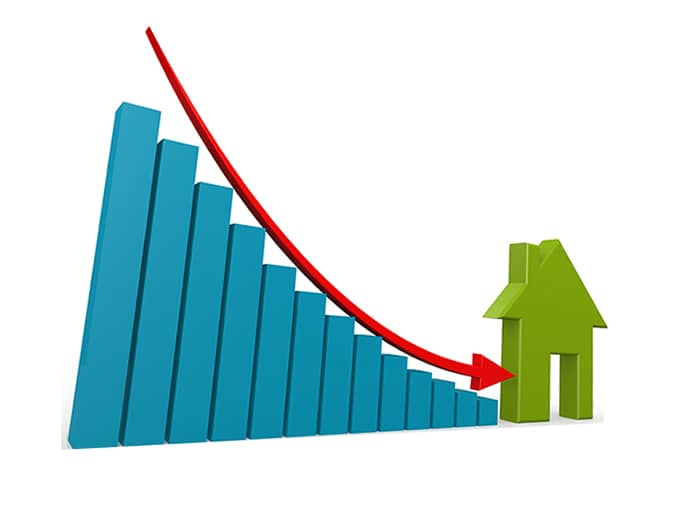The booming housing market we saw over the last couple of years is seeing a correction. It’s not a housing bubble or housing crash like we saw in 2008, but rather a market correction. Spurred by both rising mortgage rates and higher inflation rates, the demand is slowing, so what does this mean for buyers and sellers?
Inventories Remain Low While Demand is Still High in the Real Estate Market
Housing demand isn’t at the same levels we saw it over the last couple of years. But it’s still high and outpacing the current inventory levels. Millennials are feeling the crunch the most, as they are the generation that’s about ready to buy but is quickly being priced out or left without any inventory to even consider.
High demand combined with low inventory maintains the sellers’ market. It won’t be as intense as we saw in 2021 and the start of 2022, but it’s still there. This keeps sellers in the driver’s seat, allowing them to be picky about which offers they accept, demanding only the highest prices for their homes.
Prices Won’t Increase, but They Won’t Drop Either
Housing prices increased by 17% or more in 2021, which pushed many potential homebuyers out of the market. We won’t likely see prices that high any longer, but that doesn’t mean prices will drop this year. Instead, housing prices are predicted to remain steady or increase at much slower rates. Which can be good news for buyers. If you were priced out last year, you can adjust your budget and plan for much slower increases to make home-buying more affordable this year.
Bidding Wars Won’t be as Common
If you know anyone who tried to buy a house in 2021, they likely faced a bidding war and not a friendly one. Prices skyrocketed beyond most homes’ values because of the high demand for houses coupled with the low inventory. Buyers were desperate to get their dream homes and were willing to pay the difference between the market value and the actual sales price.
This won’t be the case as often in 2022, which means the possibility of securing slightly lower prices, making homes more affordable.
What Does This Mean for Buyers?
A few things might be prevalent:
- You may not have to offer an appraisal contingency waiver to win the bid. This was most common in 2021 with most winning bidders giving up the chance to back out of a contract if the appraisal came in lower than the sales price.
- You don’t have to be an all-cash buyer. In 2022, preference was given to all-cash buyers because appraisals weren’t an issue then. Sellers could also move much faster in the closing process, moving faster than if they accepted a financed offer. Today, you don’t have to be an all-cash buyer as there aren’t as many offers trying to push you out of the way.
- You have more flexibility. Sellers could be as finicky as they wanted in 2022 because they had more offers than they could handle. Today, the number of offers has decreased, which means buyers don’t have to be ‘perfect’ to get chosen to buy a house.
Mortgage Rates Will Play a Big Role in the Market
Mortgage rates play a big role in housing correction. The Fed increased rates from their almost 0% status last year. Causing mortgage rates to go from the 3% range to the 5% range faster than anyone thought possible. What this does is slow down buyers. It might price some buyers out, but it will put a budget on almost everyone. Before buyers even look at homes, they should consider what they can afford.
Consider getting pre-approved with a lender so you know where you stand. How much money must you put down? How much loan will a lender offer you? These are answers you should have before you look at homes. Your buying power might not be as high as you once thought because of the higher interest rates. Putting things into perspective before you look at homes can make your home search more streamlined and less stressful.
Sellers May Sit on Homes Longer
In 2021, homes sold FAST, sometimes on the same day a seller listed them. Today, though, the days on market are much longer. This means sellers have to plan for a longer period of showing homes, comparing offers, and even escrow periods once they accept an offer. Buyers aren’t as desperate today so there is less urgency when they look at homes. While the days on market likely won’t hit the levels they were at pre-pandemic, they will be higher than last year.
This means sellers have to plan accordingly, but buyers get more flexibility. There’s no longer the urgency to make a rash decision. Buyers can mull the decision over for a few days and still have an opportunity to place a bid should they decide the home is right.
Final Thoughts
A housing correction could be what the market needs so an overwhelming number of buyers don’t get priced out of the market. While it won’t change overnight, we’re seeing subtle changes already that affect both buyers and sellers.
The key for everyone in the transaction is to have patience, think through the process of buying or selling, and make the right financial decision. Selling for much more than a home is worth or pushing other buyers out of the way because they aren’t offering prices well above the market value isn’t good for those buyers or the market as a whole. As the market corrects itself, there will still be homes bought and sold. Yes, many will still sell above market value, but eventually, we’ll see that corrected and things can return to a somewhat ‘normal position.’





